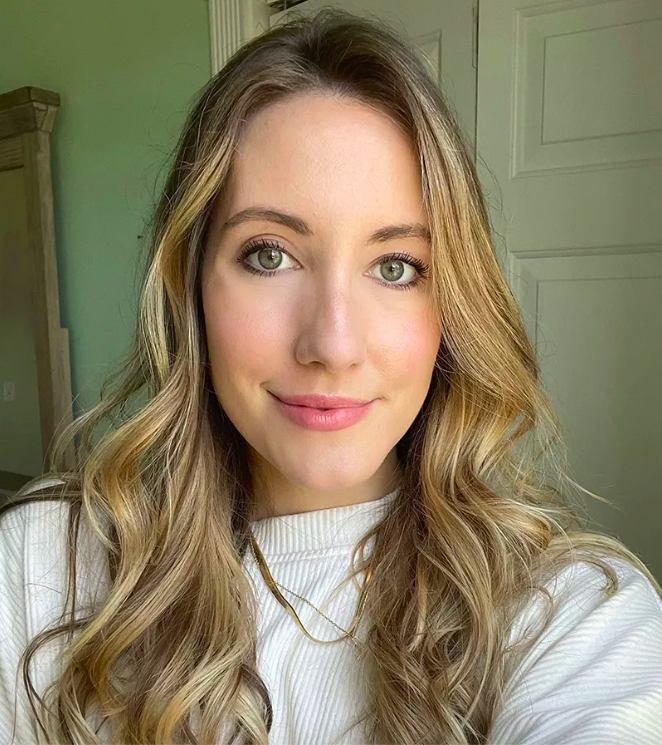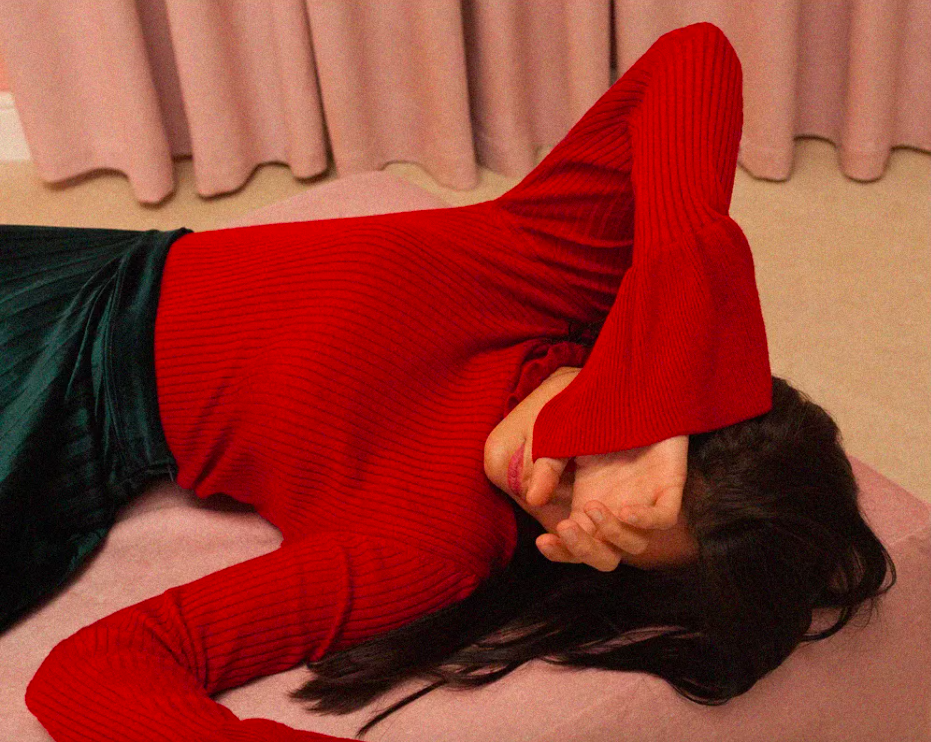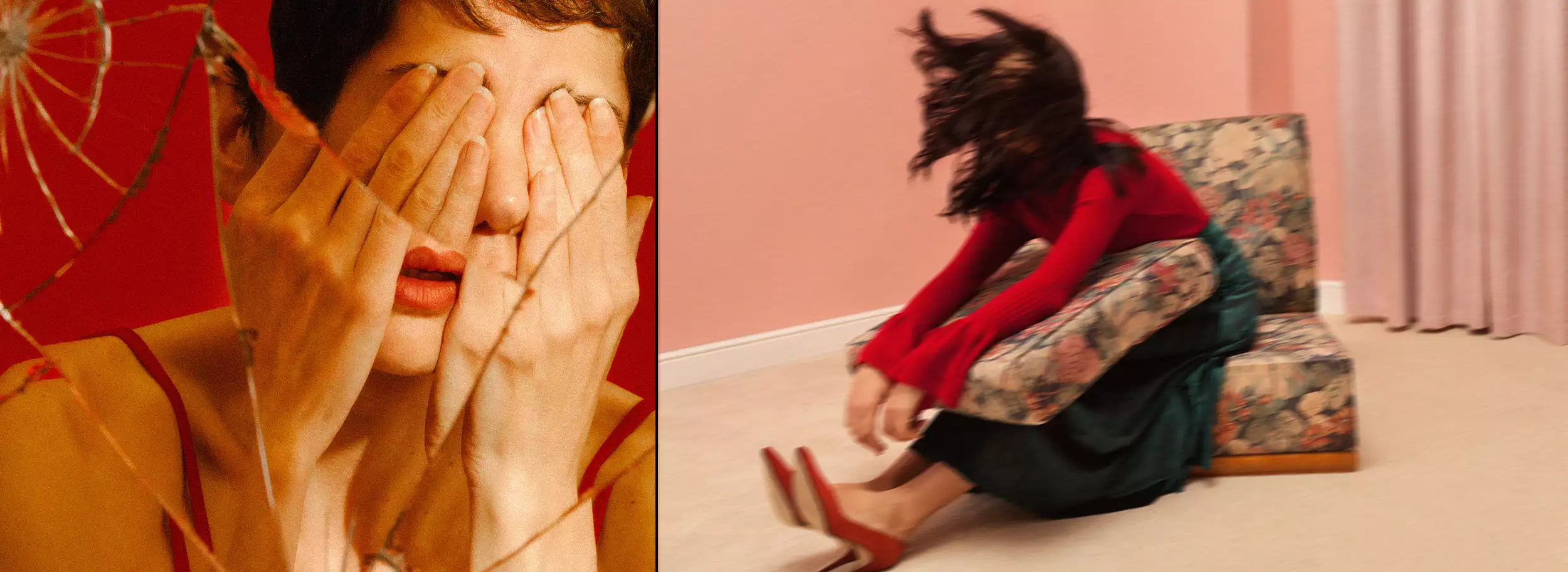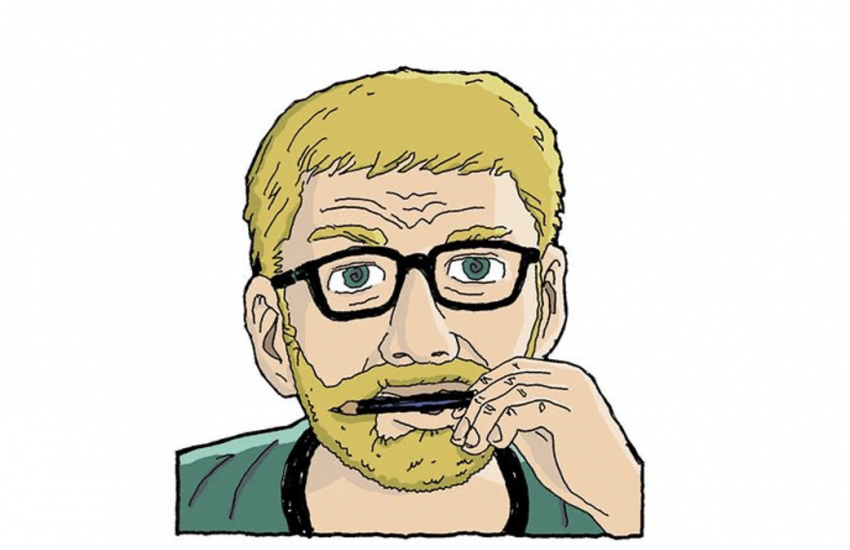Journalist Lindsey Metrus shares her journey with generalized anxiety disorder
In the last few years, mental health has rapidly grown as a topic of interest, particularly on the internet. Once stigmatized and too taboo to discuss, sharing personal mental wellness stories is quickly becoming normalized — this helps individuals with feelings of loneliness feel not so alone and makes not being okay 100% of the time, perfectly okay.
Journalist Lindsey Metrus (currently Director of Commerce for People Magazine and Entertainment Weekly), belongs to the group of individuals helping us get one step closer to complete normalization with her article How to Cope With a Sudden Onset of Anxiety, published on Byrdie.com, where she discusses her experience getting diagnosed with Generalized Anxiety Disorder (GAD).
Storybench sat down with Lindsey to talk about her own journey with mental health, as well as her career as a journalist.

What made you want to go into journalism and what has your career been like?
I started out wanting to be a therapist, so I went to grad school and got my MSW. When I was in grad school, I realized that it wasn’t my passion. So I started doing a little soul-searching. I met someone who worked in the beauty industry, and she wrote product copy for Sephora and things like that, and it made me think, like, oh, I love beauty, I could totally do something like that.
I started getting some random internships for very little-known websites, whoever would take and pay me. It was like $8 a story, which is a crime. Once I got my foot in the door at a couple of places, I then applied for an internship at StyleCaster, and then that got me an internship at BuzzFeed. And then that’s kind of what got me into Byrdie because my boss at BuzzFeed was offered a job at Byrdie, but she actually said, hey, I have an intern who might be even better, so she helped me get my first job.
Was there a particular moment when you knew that you wanted to share your journey with mental health and write an article about it?
At Byrdie, instead of doing a typical magazine issue, we would do digital issues. So it would be a packaged group of stories with a celebrity cover, but online instead of in print. The theme for that one might have been something around wellness. Typically try to come up with a personal story that could make for a good feature. I had just come out of a really awful situation with having panic attacks, and I was like, you know what? I’ve been doing so much online research when I was having my symptoms, trying to figure out what could be causing this and I fell upon a couple of online forums of people sharing their story, and I was like, maybe if I share my story on Byrdie, that will help other people who are in a similar situation.

Do you think that the mental health stigma has gotten better or worse over the past couple of years?
I feel like it’s gotten so much better, especially because of social media. I think the special thing about TikTok is that unlike Instagram, where it’s a curated feed of your highlight reels, TikTok is people just being real and really honest and raw. I keep seeing on TikTok people sharing their journey, talking about mental health, and making it very accessible. More celebrities have started sharing too. I think that it’s just common now for people to talk about it and not be embarrassed. Even at work, people will throw that they have a therapy session on the calendar and it’s totally accepted, so I think we’ve made such huge strides.
Do you believe that there are any misconceptions involving anxiety and mental health?
I think people who don’t experience issues with mental health and just know what they see in the few articles they’ve read and in movies and TV think that anxiety is very forward presenting. They assume that if somebody has anxiety, then it means that they’re jittery or they’re playing with their hands and that it’s very outwardly obvious. Whereas there are some people with extremely high functioning anxiety where everything seems perfectly fine, but on the inside, they’re really struggling. I think that one of the biggest misconceptions is that it looks very different for so many people, and if somebody says that they have anxiety, if they don’t look like they do, then you can’t dock them for that.
“I feel like it’s gotten so much better, especially because of social media. I think the special thing about TikTok is that unlike Instagram, where it’s a curated feed of your highlight reels, TikTok is people just being real and really honest and raw. I keep seeing on TikTok people sharing their journey, talking about mental health, and making it very accessible.”
Lindsay Metrus
Was it different to write about your personal experience with anxiety rather than another article?
I was much more nervous to kind of be vulnerable and put myself out there. I didn’t want it to be taken the wrong way. There are people who have struggled with anxiety for years and are still trying to find a solution, whereas it had only been a couple of months that I had been dealing with it. I didn’t want it to come across as ‘oh, look at me, look at all the progress I’ve made’, and meanwhile, there are people who just feel like they can’t dig themselves out from underneath it.
I wanted to make sure that I was very sensitive in my language and that I was considering all different points of view instead of just staying in my own lane. I think that one of the most important things with journalism is making sure that you are not talking to just one audience, but multiple audiences. But it was fun, though. I really enjoyed it, and I shared it with my therapist when I was done, and he really loved that. And he was like, oh, you talked about me?

Do you have any advice for individuals who are going through something similar or anything else you’d like to share?
Don’t think that your journey is going to look exactly like a bunch of other people’s. Maybe medication is the route that you need to take, but maybe it’s not. Something that scared me a lot is that I really didn’t want to take anything, even though so many people do, and it’s perfectly normal. It’s like taking Aspirin for back pain, but it just kind of made me a little bit nervous. I was like, I don’t know if I really need it right now. And so I just kind of tried therapy first, and it was basically like taking medication.
Try different modalities, if one route scares you, whether it be therapy, whether it be medication, whether it be whatever, just try what you feel comfortable with first, and then maybe once you exhaust all avenues try something that’s maybe a little bit more clinical. Just know that there are a lot of different options that work for so many people and that there’s definitely a light at the end of the tunnel.





